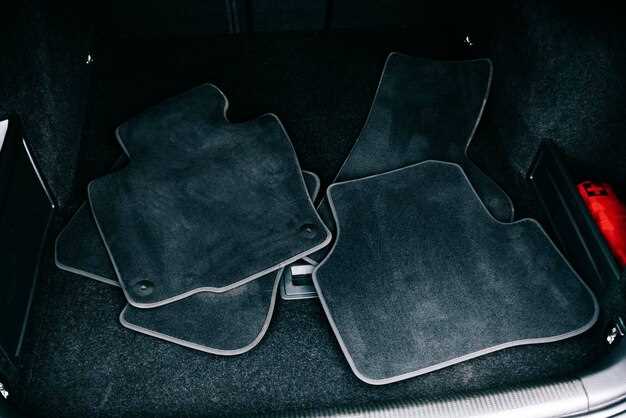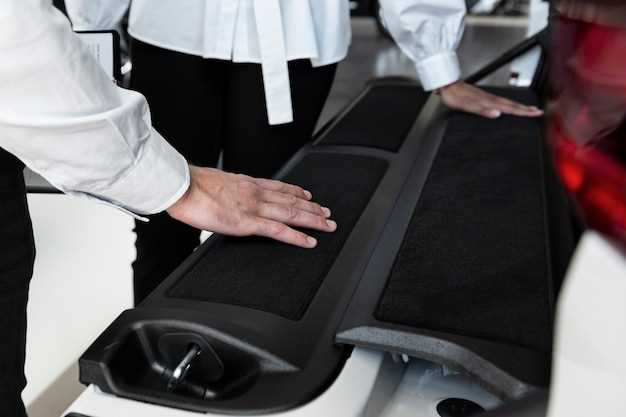
When it comes to maintaining the interior of your vehicle, floor mats play a crucial role. They not only enhance the aesthetic appeal of your car but also provide a protective barrier against dirt, moisture, and wear. Choosing the right mats is essential for preserving the quality of your vehicle’s flooring and ensuring a comfortable ride.
With a myriad of options available on the market, it can be overwhelming to determine which floor mats best suit your needs. Factors such as material, durability, and ease of cleaning should be taken into account. Whether you’re looking for all-weather protection or something more stylish, understanding the different types of mats will help you make an informed choice.
In this guide, we will explore the various types of car floor mats, their benefits, and tips on how to select the best option for your vehicle. By the end of this article, you will be well-equipped to choose mats that combine functionality, style, and protection for your car’s interior.
Evaluating Material Options for Durability and Comfort

Selecting the right material for car floor mats is essential to ensure both durability and comfort. Various materials offer unique benefits, making it crucial to assess their properties and suitability for your vehicle. Here are the most common options:
- Rubber Mats:
- Highly durable and resistant to wear and tear.
- Excellent protection against water, mud, and spills.
- Easy to clean; can be rinsed off or wiped down.
- Carpet Mats:
- Provide a softer, more comfortable surface underfoot.
- Often come in various colors and styles to match a vehicle’s interior.
- May not offer the same level of protection against liquids and dirt as rubber mats.
- Vinyl Mats:
- Waterproof and easy to maintain, offering significant protection.
- Durable and resistant to stains, making them a practical choice.
- Can provide a balance between comfort and functionality.
- All-Weather Mats:
- Designed specifically for extreme conditions, offering superior protection.
- Typically made of thick rubber or vinyl, ensuring resistance to harsh elements.
- Traps dirt and moisture, preventing damage to the car’s flooring.
When evaluating these materials, consider the following factors:
- Climate: Your location’s weather conditions will influence the type of mats you need. For snowy or rainy climates, rubber or all-weather mats are advisable.
- Usage: If you frequently carry pets or heavy cargo, durable options like rubber or vinyl may be best.
- Comfort: If you prioritize a comfortable driving experience, carpet mats may be preferred, but be aware of their maintenance needs.
- Maintenance: Evaluate how easy it is to clean and maintain the mats. Rubber and vinyl are easier to clean than carpets.
Choosing the right floor mats involves balancing comfort with necessary protection. Assessing the material options ensures that you make a choice that meets your needs and enhances your vehicle’s interior.
Understanding Custom Fit vs. Universal Mats for Your Vehicle

When selecting floor mats for your vehicle, one of the crucial decisions involves choosing between custom fit and universal mats. Each option offers distinct features that cater to different needs for protection and functionality.
Custom fit mats are specifically designed to match the contours of a particular vehicle model. This precise design ensures maximum coverage of the floor area, providing enhanced protection against dirt, spills, and wear and tear. These mats typically feature raised edges to contain liquids, keeping the vehicle’s interior clean and safeguarded from damage. Additionally, custom fit mats often integrate with factory floor clips, ensuring they remain securely in place during driving.
On the other hand, universal mats are designed to fit a wide range of vehicles, offering a more generic solution for floor protection. While they can be a cost-effective option, universal mats may not provide the same level of coverage or security as custom fit mats. They often require adjustments, such as trimming, to achieve a better fit in specific vehicles. This flexibility can be advantageous for those who own multiple cars or who prefer a temporary solution.
In summary, the choice between custom fit and universal mats ultimately depends on your priorities. If maximum protection and a tailored fit are essential for your vehicle, custom fit mats are the ideal choice. However, if versatility and affordability are more appealing, universal mats can still provide reasonable floor protection. Assess your specific needs to determine which option best meets your vehicle’s requirements.
Assessing Maintenance and Cleaning Requirements for Longevity
When selecting car floor mats, understanding the maintenance and cleaning needs is crucial to ensure their longevity and optimal protection. Different materials require different care routines, which can significantly impact the lifespan of your mats.
Rubber and vinyl mats are generally easier to maintain, as they can be easily wiped down or hosed off. Regularly removing dirt and debris prevents it from getting trapped, which can lead to wear over time. Ensure that you check for signs of cracking or fading, as these indicate the need for replacement.
Carpet mats, while offering a plush feel, often require more intensive cleaning. Vacuuming regularly is essential to remove dirt and soil particles that can cause irreversible damage. For deeper cleaning, using mild detergents and brushes can effectively restore their appearance. Be cautious with strong chemicals, as they may lead to discoloration or deterioration of the fibers.
Another aspect to consider is the environment in which your vehicle is used. If you frequently drive in muddy or snowy conditions, opting for mats that are easy to clean will save time and effort. Mats with raised edges can also be beneficial, as they contain spills and prevent moisture from damaging the car’s interior.
Ultimately, choosing the right floor mats involves balancing between ease of cleaning and the level of protection they provide. Regular maintenance not only prolongs the life of the mats but also preserves the overall interior aesthetics of your vehicle.



